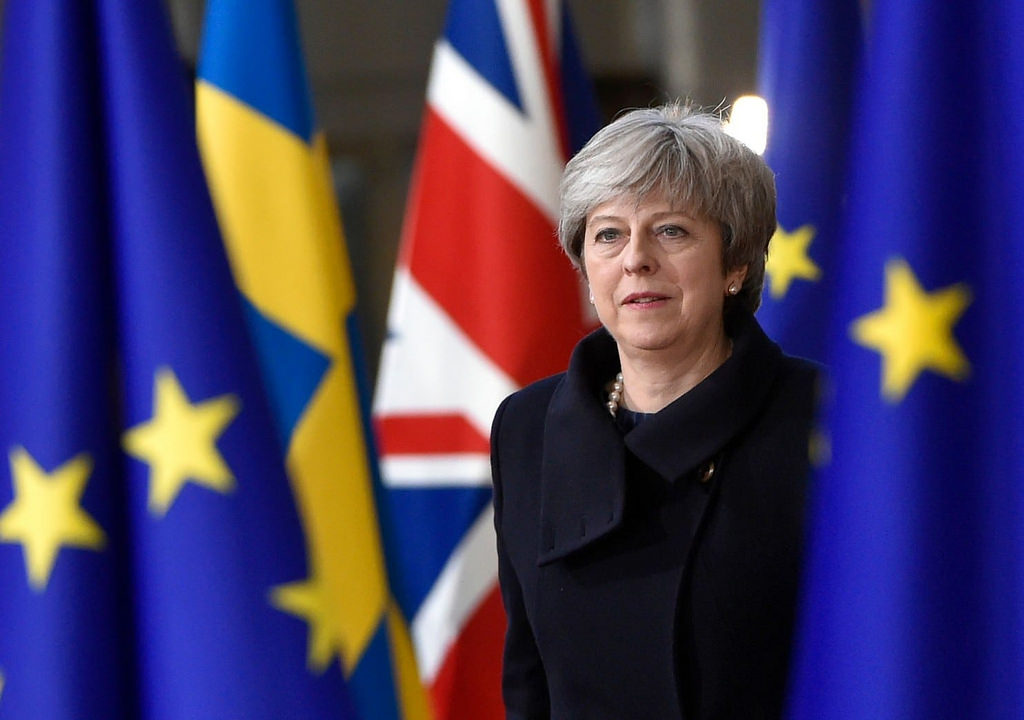
What does May’s Brexit deal mean for exporting SMEs?
12 Aug 2018If you’ve been doing your best to avoid Brexit and all the news that comes with it, we completely understand.
The last few months have been something of political tragedy for both sides of Britain’s exit from the EU, but as an agreed exit plan nears fruition it’s time to analyse the latest developments and understand how they impact SMEs who rely on exporting and manufacturing to keep their lights on.
It’s been two years since the British public voted to leave the European Union. Since the Brexit outcome, we’ve witnessed over 730 days worth of in-fighting between politicians, and seen calls for a ‘vote of no confidence’ from MPs, in the hope that prime minister Theresa May may step down.
It looks like we’re finally getting to the end of the Brexit negotiations, which means small businesses must start planning out their post-Brexit policies before it’s too late.
Are you concerned about the impact of Brexit on your business? Our MBA-qualified business consultant is an expert in business strategy and creating bespoke business plans to navigate even the most turbulent times.
Get in touch to discuss how he can help your business.
The Chancellor has his say
According to British Chancellor Philip Hammond, Brexit “in any form” would leave the UK economy worse off.
“From an economic point of view, there will be a cost to Brexit as there will be impediments to our trade,” he said.
Hammond also said the British economy would be “slightly smaller” as a result of Theresa May’s Brexit deal mainly because the UK are leaving the single market.
“Remaining in the single market was the best way to secure the country’s economic future,” he added.
What will the economy look like?
According to research from the BBC, Brexit could leave the economy as much as 5.5% smaller in a decade’s time.
Public finances could also be affected and may use up an estimated 1.8% of GDP, according to research by the London School of Economics, King’s College and the Institute for Fiscal Studies.
The above study says new trade barriers and a fall in immigration as a result of Brexit will have a direct hand in the economic downturn.
This isn’t such good news for UK manufacturing companies that employ European nationals, as well as their exporting counterparts who want to get their goods to the continent as easily and quickly as possible.
What is Theresa May’s proposed deal?
While it’s not yet legally binding, May’s proposed deal accompanies the 585-page Draft Withdrawal Agreement which will become legally binding in the near future.
May’s deal was agreed by EU leaders on November 25th, 2018. However, official negotiations on everything it contains can only begin after Brexit has actually happened – as things stand, this is pencilled in to happen on March 29th, 2019.
At its heart, May’s deal contains a series of affirmations including a desire to maintain shared interests, co-operation and close partnerships with the EU despite leaving the organisation.
However, the Prime Minister is facing a struggle getting the Brexit/Remain divided parliament to support her deal collectively, and this remains an ongoing battle for her on home soil.
So-so deal for exporters and manufacturers
According to a report published by independent think tank The UK in a Changing Europe, if the UK exits under May’s deal, Britain will remain in a customs union with the EU, but it will leave the single market.
“Ms May’s deal does offer benefits, including control of borders, the ability to sign independent trade deals and fishing rights.” – Philip Hammond says exporters must remember that Britain will remain an ally and trade partner with the EU.
Whilst there is a divorce happening, it’s in the economic and diplomatic interests of both sides to continue to benefit from trade with each other.
This was reaffirmed by European Council leader, Donald Tusk at the Special meeting of the European Council on November 15th, 2018:
“Ahead of us is the difficult process of ratification as well as further negotiations. But regardless of how it will all end, one thing is certain: we will remain friends until the end of days, and one day longer,” he said.
Staying in the customs union
According to the deal, the whole of the UK will remain in the EU customs union.
For SMEs that are currently, or are hoping, to export their products into Europe, staying in the EU customs union means that EU states shouldn’t be imposing tariffs on their goods going into Europe.
If their goods are cleared in one EU country, UK goods shouldn’t be stopped again, meaning they should be able to move with ease throughout the continent.
Even if things change, and the UK stays within the customs union but is treated like a non-EU entity in some way, then EU states should always impose the same tariffs on British goods across the continent.
According to The Guardian, there is evidence the EU wants the UK to remain in the customs union indefinitely, and if so, this is good news for SME exporters and manufacturers that intend to continue their services in Europe.
Leaving the single market
While the UK would leave the single market under the terms of May’s deal, Northern Ireland will remain within part of it.
But what is the single market, and how is it different to the customs union?
“The single market is known as The European Single Market, Internal Market or Common Market, it’s a single market which seeks to guarantee the free movement of goods, capital, services, and labour across the continent,” according to the BBC.
According to BBC sources, May’s proposed deal includes a “Commitment to respect the EU’s four freedom – the free movement, of people, goods, services and money around the EU”. However, in her deal, she makes a “specific reference” to ending “the free movement of people in the UK.”
Basically, while the UK will acknowledge the right of free movement in the EU, this will firmly stop in the UK after Brexit.
Businesses that employ European labour
For British companies that employ both skilled and unskilled European labour, leaving the single market will, most likely, affect their recruitment success.
Many potential employees will likely be dissuaded from economic opportunities in Britain, especially if they’re coming to the UK for the first time after Brexit has happened. Currently, the UK only expects to safeguard the rights of EU nationals already living in Britain.
What is the backstop we keep hearing about?
This is connected to the single market issue. The backstop agreement is an insurance policy that comes into force should the two sides, Britain and the EU, not reach an eventual agreement.
This is for the purpose of Northern Ireland, that will remain within the European Union’s regulatory and customs arrangements to prevent the emergence of a hard border with the Republic of Ireland.
Predicted outcomes from current May’s Brexit deal
Statistics from the BBC suggest that GDP per capita could be up to 1.9%-5.5% lower by 2030 following an official Brexit next year.
However, this would rise to 3.5%-8.7% if there was a no-deal Brexit.
It’s now up to Theresa May to persuade her MPs to support her own Brexit deal.
If they reject the deal, the UK could leave the EU with no deal which could stimulate a significant economic decline.
With no safeguards in place such as staying in the customs union for UK exporters and manufacturers, a ‘no deal’ Brexit could effectively kill their business, as well a huge number of other businesses around the region.
Alternatively, the UK may attempt a renegotiation with the EU, or, in the most extreme case, there could even be a ‘second referendum’ on EU membership in the UK.





















